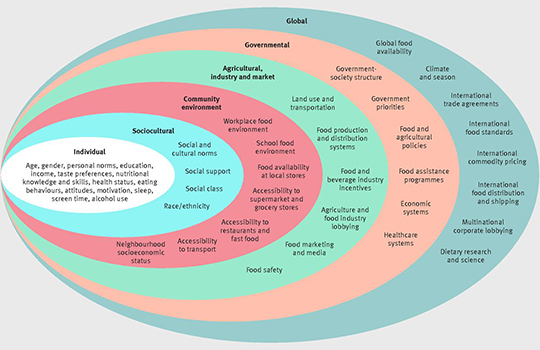
Heart disease is the leading cause of death in the United States. It can be prevented by eating healthy and exercising. If you are a person with a history of cardiovascular disease, your doctor will recommend that you get examined. The American Heart Association website has more information on prevention.
The risk factors that contribute to heart disease include high blood pressure, diabetes, overweight, obesity, and smoking. These factors must be addressed as they increase the likelihood of developing heart problems or other health complications. They are not the only risk factors to be considered.
Genetics are another major factor. There is a strong relationship between your genes and the likelihood of developing cardiovascular issues. Your doctor can help you determine your risk and create a plan for lowering it.
These are not the only factors that lead to heart disease. There are many others. People's age, ethnicity, gender and sexual orientation can all impact their risk.

High cholesterol is another important factor. A diet low in saturated fats can help reduce high cholesterol levels. Reduced intake of sugars can help reduce inflammation. Adding more fruits and vegetables to the diet is another way to improve your overall health. Healthy eating habits can also help lower blood sugar and blood pressure.
Numerous studies have looked at the effects of cholesterol on heart disease risk. The Journal of Clinical Lipidology published a study that examined large-scale heart disease databases. Researchers were able to calculate the risk for each patient using these data. They found that the average age-adjusted 10-year risk of developing heart disease decreased from 10 percent to 7.9 percent from the early to mid-period.
While these studies may provide insight into the causes of cardiovascular issues, they are not definitive. Improved treatment methods could partly explain the decrease in heart disease risk. These findings indicate that there hasn't been as much progress over the last few decades.
Limiting saturated fats and added sweetness in your diet will help reduce your risk of developing heart disease. Eating whole grains, fresh fruits, and vegetables can help reduce your risk of heart disease.
Getting a full night's sleep is another important step in preventing heart disease. Your body will fight off any harmful diseases if you get enough rest. Additionally, deep breathing and meditation can reduce stress and enhance your general health.

To prevent heart disease, it is important to maintain a healthy weight. Overweight and obesity can lead directly to high blood cholesterol, type 2 diabetes and low HDL. You should be active and quit smoking.
Heart disease is more common in men than it is in women. After age 45, they start to show signs of increased risk. You should see your doctor if you have any concerns about cholesterol or other health issues, particularly if your family has a loved one with a condition that affects the heart.
FAQ
What is the problem?
BMI stands for Body Mass Index, which is a measurement of body fat based on height and weight. Here is how to calculate BMI using the following formula.
Add weight in kilograms to height in meters squared.
The result is expressed as a number from 0 to 25. A score of 18.5 or higher indicates overweight, while a score of 23 or higher indicates obesity.
A person who is 100kg and 1.75m tall will have a 22 BMI.
What are 10 healthy habits?
-
Breakfast is a must every day.
-
Don't skip meals.
-
Maintain a balanced diet.
-
Get lots of water.
-
Take care your body.
-
Get enough sleep.
-
Avoid junk food.
-
Get at least one form of exercise each day.
-
Have fun!
-
Make new friends
Get immune enhancement with herbs and supplements
You can boost your immune function with herbs and natural remedies. Examples include ginger, garlic and oregano, echinacea, vitamin C, ginkgo Biloba, and echinacea.
These herbal remedies should not be used in place of conventional medical treatment. These herbal remedies can cause nausea, diarrhea and stomach cramps. They can also cause dizziness, headaches, dizziness, allergic reactions, and stomach pains.
What is the difference between a virus and a bacterium?
A virus can be described as a microscopic organism incapable of reproducing outside its host cell. A bacterium is an organism that splits itself in two. Viruses are small, around 20 nanometers in size. Bacteria are much larger, at 1 micron.
Viruses can spread from contact with bodily fluids that are infected such as saliva, urine or semen. Bacteria are usually spread through direct contact with contaminated objects or surfaces.
Viruses can get into our bodies through cuts and scrapes on the skin, bites or other injuries. They can also enter the body through the nose and mouth, eyes, ears or rectum.
Bacteria may enter our bodies through cuts and scrapes on our skin, burns, insect bites, and other wounds. They may also come into our bodies through food, water, air, soil, dust, or animals.
Both bacteria and viruses cause illness. Viruses can not multiply in the host. They can only infect living cells and cause illness.
Bacteria can cause illness by multiplying in the body. They can also invade other parts of your body. We need antibiotics to get rid of them.
Statistics
- According to the Physical Activity Guidelines for Americans, we should strive for at least 150 minutes of moderate intensity activity each week (54Trusted Source Smoking, harmful use of drugs, and alcohol abuse can all seriously negatively affect your health. (healthline.com)
- The Dietary Guidelines for Americans recommend keeping added sugar intake below 10% of your daily calorie intake, while the World Health Organization recommends slashing added sugars to 5% or less of your daily calories for optimal health (59Trusted (healthline.com)
- WHO recommends consuming less than 5% of total energy intake for additional health benefits. (who.int)
- WHO recommends reducing saturated fats to less than 10% of total energy intake; reducing trans-fats to less than 1% of total energy intake; and replacing both saturated fats and trans-fats to unsaturated fats. (who.int)
External Links
How To
27 Steps to achieve a healthy lifestyle when your family only buys junk food
Cooking at home is the most popular way to eat healthily. However, this is often difficult because people do not know how to prepare healthy meals. This article will give you some tips on how to make healthier choices when eating out.
-
Look for restaurants that offer healthy choices.
-
Before ordering meat dishes, order salads and other vegetables.
-
Ask for sauces made without sugar.
-
Avoid fried items
-
Grilled meats are better than fried.
-
Order dessert only if you absolutely need it.
-
You must ensure that you have something more to eat after your dinner.
-
Take your time and chew slowly.
-
Get plenty of water when you eat.
-
Breakfast and lunch should not be skipped.
-
Have fruit and veggies with every meal.
-
Drink milk rather than soda.
-
Try to stay away from sugary drinks.
-
Reduce salt intake.
-
Try to limit your frequent visits to fast-food restaurants.
-
If you can't resist temptation, ask someone to join you.
-
Your children shouldn't watch too much television.
-
Turn off the television during meals.
-
Avoid energy drinks
-
Take frequent breaks from your job.
-
Get up at a reasonable hour and do some exercise.
-
Do some exercise every day.
-
Start small and build up gradually.
-
Set realistic goals.
-
Be patient.
-
Exercise even if it's not your favorite thing to do.
-
Use positive thinking.